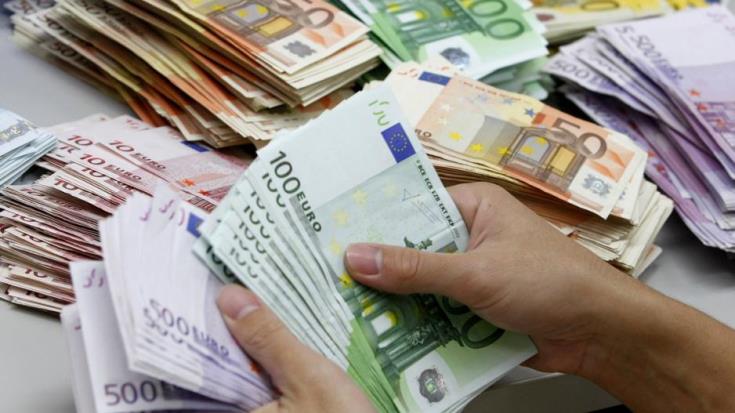Cyprus has appealed to international and local lenders to borrow an additional €3 bln to cover financing needs created by the fiscal impact of the COVID-19 pandemic at a higher cost than previous bond issues.
The Treasury has issued two new benchmark-sized Euro Medium-Term Notes for a total amount of €1.75 bln, adding to the state’s liquidity and capability to support the local economy during the coronavirus crisis.
Nicosia will be looking to draw another €1.25 bln from Cyprus banks next week, by issuing local bonds with a maturity of 12 months.
According to sources close to the procedures, the interest rate on the bonds is expected to be 0.5%.
Cyprus’ newest bonds come at a high cost as interest rates on the two EMTNs are higher than previous issues.
The 7-year bond amounting to €1.25 bln, was priced at +165 basis points above the mid reference price -swaps (1.5%) and the 30-year bond, fetching €500 mln, were priced at +215 basis points above the mid-swaps reference price (2.25%).
Total bids amounted to €2.6 bln with €1.8 bln for the 7-year period and €800 mln for the 30-year period.
The Public Debt Management Office said in an announcement that the two bonds were issued to cover financing needs created by the COVID-19 crisis.
Finance Minister Constantinos Petrides expressed satisfaction with the completion of the issuance of Cyprus’ latest bonds.
He said the amount of the total supply shows that in this difficult international economic situation, characterised by great uncertainty due to the economic impact of the pandemic, the Cypriot economy continues to be surrounded by confidence in international markets.
“The government’s primary concern at this time is to ensure the necessary supplies, to follow those prudent policies that will allow us to support the welfare state and health system, the workers and vulnerable groups, at this difficult time until the economy recovers,” Petrides said.
Currently, as estimated, the state has liquidity of €1.1 bln at its disposal to deal with the crisis and hand out support packages to employees and businesses while facing what economists fear is the biggest post-1974 crisis.
Cyprus planned to borrow some €2.5 bln in 2020 but saw its financing needs inflating to €5.5 bln.
The high cost of Cyprus’ latest appeal to international markets has raised a few eyebrows among economists, as it is considerably higher than previous issues while putting a strain on public debt.
Earlier in the year, Cyprus had hit international markets with a low-interest double bond issue that yielded €1.75 bln.
It secured €1 bln from a 10-year bond issued at a 0.73% rate. A 20-year bond raised €750 mln at 1.33%.
Total pledge value had then exceeded €13 bln, comprising the largest bid in of this type in Cyprus’ history, and the bonds were oversubscribed seven times
With Cyprus’ latest bond issues, corresponding to 8% of GDP, public debt returns to levels above 100%, making the economic recovery an even more complex task after the 2013 financial crisis.
The Finance Ministry has already announced that it expects to see the country’s economy shrink by 5-10% of GDP.
Banks have money to spare
In comments to the Financial Mirror, chairman of Cyprus Fiscal Council, Demetris Georgiades said that while not in a position to influence state policies, the council is concerned about the state keeping its fiscal debt under control.
“Of course, it may seem that the state’s fiscal policy sheet might be offset, but turning to international markets at this time, during the coronavirus crisis, might not be a matter of choice,” said Georgiades.
The Fiscal council does not wish to see a scenario unfold, in which the state’s debt is inflated to the extent which it will become non-viable the day after.
“However, the stakes are high enough to claim that if the economy is not supported, there might not be a day after. And to do this, the state will need to increase its borrowing.”
He said the above argument should not enable decisionmakers to feel more comfortable about agreeing to higher interest rates.
Returning to the latest bond issue, Georgiades said that, given the crisis, the decision to issue the bonds in question was a sound one as nobody can predict what lays ahead for the local and world economy in the aftermath of coronavirus.
Georgiades argued that borrowing money now, even with the agreed interest rate, could be cheaper than borrowing money later.
“The extra cost of money borrowed now could be perceived as premium we have to pay to have liquidity in September if things don’t turn around or we have a second wave of the virus later on in the year.”
Some economists argue the government rushed to issue bonds while the European Union is still discussing how they can help out member states with options like triggering pandemic bonds and direct financing being on the table.
“In any case, the issue is how much money will be made available through such mechanisms and how much is needed. Cyprus cannot expect to see coming its way anywhere near its current needs.”
The government move was also found to be hasty by some economists as the state has the option to borrow from local banks, which have excess liquidity, at a much lower interest rate.
MP for the Independent Movement and economist Anna Theologou believes the government acted recklessly and in haste to secure financing.
Although acknowledging that the government had to secure large amounts of cash through borrowing, Theologou said the state should have turned to local lenders for the entire sum rather than just a part of it.
“Reportedly, the state will be paying an interest rate of 0.5% to banks which will buy Treasury bills. The state could well have asked the banks to buy bonds with a larger value and longer maturity.”
The MP explained that Cyprus banks have excess liquidity of €15 bln, for which they are paying a penalty of 0.5% to the European Central Bank.
“So, banks have something to gain from such an arrangement. They even have room to loan out their excess liquidity to the state at an even lower rate.”
Theologou said that the government should have appealed to local banks first before turning to the international markets.










